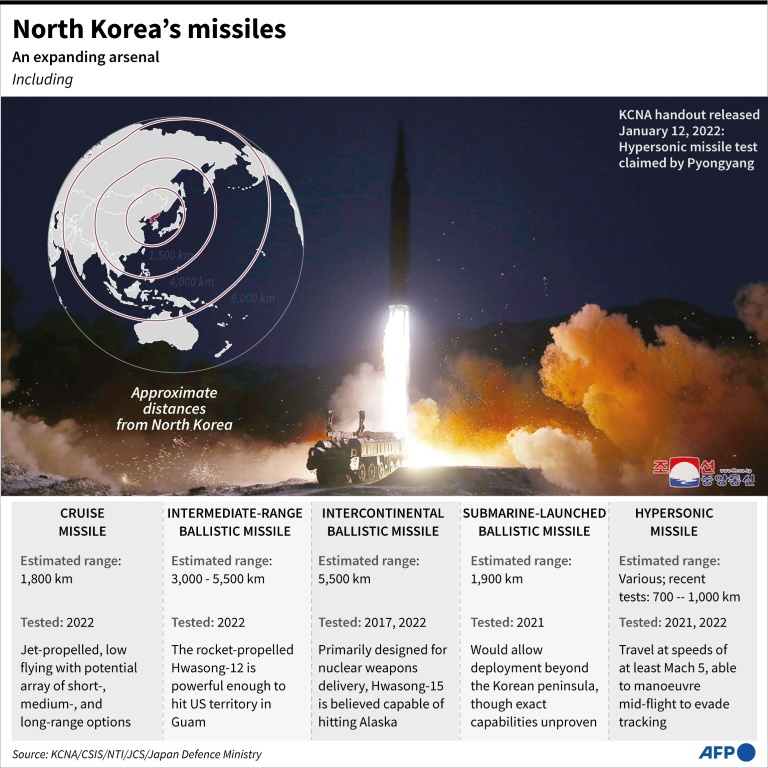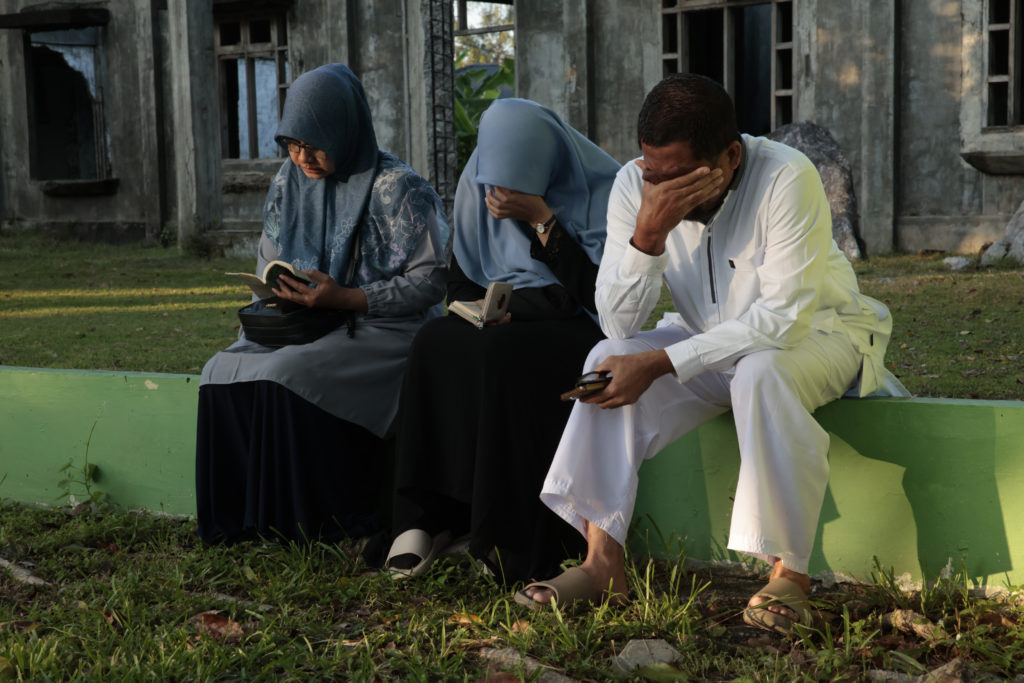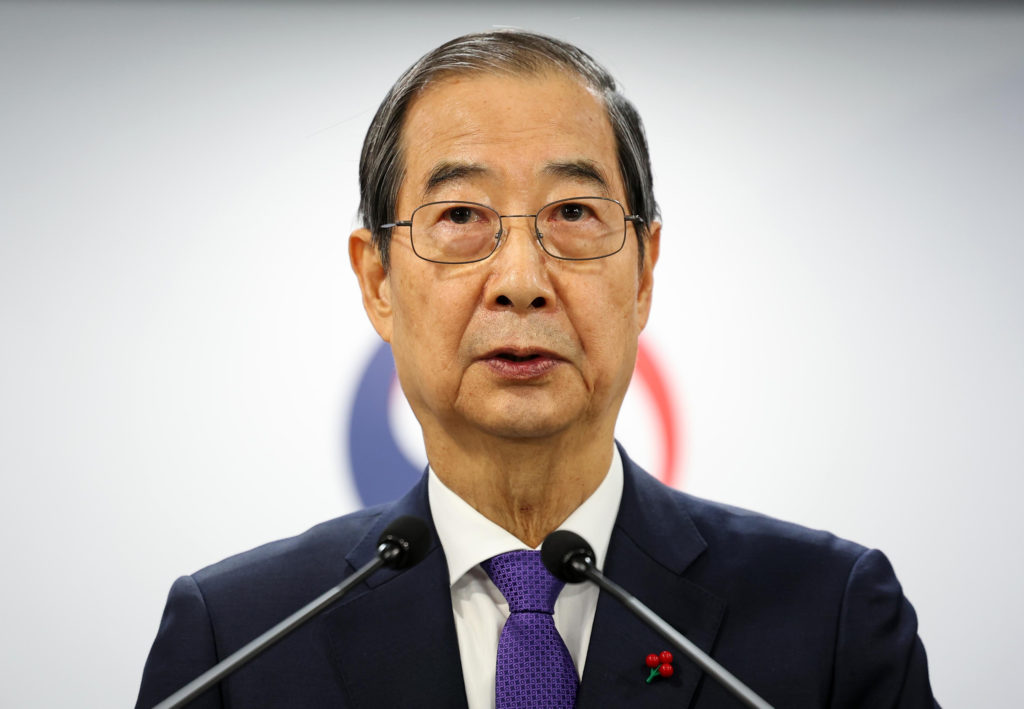North Korea fired a suspected ballistic missile Thursday, Seoul and Tokyo said, apparently continuing a weapons testing blitz that could culminate with a major, long-range missile launch.
South Korea and the United States have recently warned that Pyongyang appears to be preparing to test-fire an Intercontinental Ballistic Missile (ICBM) at full range for the first time since 2017.
Such testing was paused while leader Kim Jong Un embarked on high-profile negotiations with then-US president Donald Trump, but the talks collapsed in 2019 and diplomacy has been stalled since.
Despite biting international sanctions over its weapons programs, Pyongyang has doubled-down on Kim’s drive to modernise its military, and last week conducted a failed test of what analysts suspect was a new, long-range ICBM.
South Korea’s military said Thursday that it had detected “an unidentified projectile launched into the East Sea” without offering further detail.
The Yonhap news agency reported that it was a “suspected long-range ballistic missile”, citing Seoul’s Joint Chiefs of Staff.
A spokesman at Tokyo’s defence ministry told AFP that “an object that could be a ballistic missile was launched from North Korea”, with Japan’s coastguard issuing emergency warnings to vessels in the area.
“Pyongyang attempted to fire an ICBM at the Sunan airport last week but failed,” Go Myong-hyun, senior researcher at the Asan Institute for Policy Studies, told AFP.
“So it carried out today’s launch to make up for that failure and because it has to complete the ICBM technology right away.”
– ICBM coming? –
From hypersonic to medium-range ballistic missiles, the North test-fired a string of weaponry in January.
It also recently twice tested what it claimed were components of a “reconnaissance satellite” — although Seoul and Washington said it was a new intercontinental ballistic missile system.
Analysts say that North Korea uses ostensibly peaceful satellite development as a fig leaf for full-range ICBM development as there is significant overlap in technology.
The United States said the tests were a “serious escalation” and would be punished with fresh sanctions, warning that North Korea appeared to be preparing for a long-range ICBM test, possibly disguised as a space launch.
Last week, North Korea test-fired what Seoul said was most likely a ballistic missile, although the launch ended in failure, exploding mid-air in the skies above the capital.
The North’s state media has stayed mum on that launch but analysts have suggested it was of Pyongyang’s so-called “monster missile” — the Hwasong 17, a new ICBM system that had never been launched before.
North Korea will mark the 110th anniversary of the birth of founder Kim Il Sung on April 15, and analysts predict Pyongyang will conduct an ICBM or satellite launch as part of the celebrations.
Any such launch would mark the end of Pyongyang’s self-imposed moratorium on testing long-range and nuclear weapons — and send military tensions soaring on the Korean peninsula and beyond.
“If today’s launch turns out to be an ICBM, it would signal an end to the moratorium. That’s for sure,” analyst Go said.
“But the moratorium was virtually scrapped when the North carried out tests for space launch vehicles. And what is also key is whether Pyongyang will make today’s launch official.”
The North has carried out three ICBM tests, the last in November 2017, of a Hwasong-15 — deemed powerful enough to reach the continental United States.










